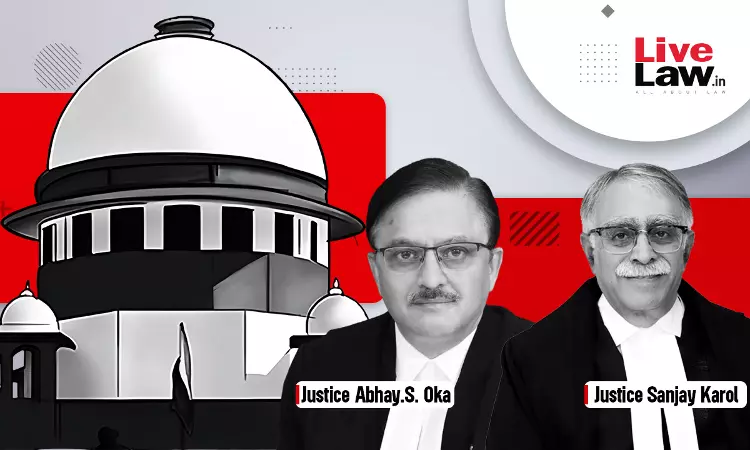Abkari Act- Person Receiving Information Of Crime Or Detecting The Occurrence Can Investigate It: Supreme Court
Ashok KM
12 Aug 2023 12:17 PM IST

Next Story
12 Aug 2023 12:17 PM IST
While upholding a conviction under the Kerala Abkari Act, the Supreme Court observed that the testimonies of official witnesses can not be discarded simply because independent witnesses were not examined."The person receiving the information of the crime or detecting the occurrence thereof, can investigate the same", the bench of Justices Abhay S Oka and Sanjay Karol observed.In this case,...
